Hand in Hand fights spread of Covid-19 in Afghanistan
Hand in Hand Afghanistan is joining the fight against Covid-19, sharing virus prevention guidelines with families in some of the hardest-to-reach areas in the country.
Lessons in handwashing, social distancing and more have appeared alongside our usual business and skills training since the start of last week, when the country reported its earliest cases.
Other measures taken so far include:
- Limiting training sessions to three to five members as opposed to the usual 20 to 30.
- Wherever possible, conducting training in members’ homes.
- In some projects, distributing livestock and chickens slightly ahead of schedule. In the event of a lockdown, chicken eggs in particular will be a vital source of nutrition. Besides, we don’t want members’ training to go to waste.
- Prioritising training modules that will do the most good during a crisis (for now, marketing takes a backseat to poultry farming, for example).
Forty cases of Covid-19 and one death have been reported in Afghanistan as of 23 March. Home to one of our biggest projects in the country, Herat Province is the epicentre of the outbreak, with most cases arriving from neighbouring Iran where thousands of Afghans are employed. Cases are expected to jump as more people return from Iran every day.
Visit our Covid updates page for the latest information on our programmes in Afghanistan and beyond.
A message from Hand in Hand International Chair Bruce Grant
In times of crisis, the vulnerable suffer most.
For now, it is the physically vulnerable who need our care and attention. But let’s not forget that one day in the not-too-distant future, it will be the economically vulnerable whose voices cry out loudest. Just as fighting the spread of Covid-19 requires every one of us to do our part today, so too will helping the world’s poorest people bounce back from the collapse of global markets require total, concerted resolve tomorrow.
As Chair of Hand in Hand International, let me be unequivocal: our global network will be ready to lead the fight. Even as programmes in some parts of the network have been forced to press pause, others are being modified to spread crucial virus prevention guidelines to some of the hardest-to-reach corners of the world. Behind the scenes, work on digitising our fieldwork and building new programmes that raise incomes even higher continues apace.
As Executive Chairman of the Applied Value Group and someone with decades of business experience, I would add that, even now, the philanthropic community must remember our incredible privilege and duty to pay it forward. Now is an exceptionally difficult time for everyone, but it’s also a time to reflect on the things that truly matter to us: family, friends and helping the most vulnerable. Let’s use this opportunity to make the world a better place – something Applied Value is doing by committing to increase our CSR pledges this year despite a forecasted drop in profitability.
To Hand in Hand’s donors and partners, we say thank you for continued support. Our team will have already reached out to you individually, and you’ll be hearing much more from us in the coming days and weeks. To our field staff in Afghanistan, East Africa and India we say thank you for working so hard through such incredible adversity. And to our members in every corner of our network, we say this: no matter where you are, no matter what it takes, we promise to help get you back on your feet – and after that, up the ladder.
Yesterday, as coronavirus deaths in my home country the United States surpassed 100, lawmakers announced $1 trillion in spending to help see Americans through. Imagine a world where we could find instant bilateral support for spending the same on micro-entrepreneurship, drilling for clean water and fighting malaria in the developing world.
Wishing you and yours health, safety and calm,
Bruce Grant
Chair, Hand in Hand International
Executive Chairman, Applied Value Group
Covid-19 updates
This page is no longer being updated. For the latest on Hand in Hand’s coronavirus response, click here.
Covid-19 has arrived in Hand in Hand’s countries of operation. Here, we provide updates on how we’re responding.
For information about how you can reduce your risk of infection, visit the World Health Organization website.
And to read a message from Hand in Hand International Chair Bruce Grant, click here.
Key updates
-
Teams in Afghanistan join fight against virus
-
Teams in Kenya join emergency response
-
Staff in Tanzania relay health information to members via mobile phone
Afghanistan
Hand in Hand is delivering soap, chlorine solution and crucial virus prevention training to 26,000 Afghans as part of the country’s official response to Covid-19 – with plans to reach 70,000 more.
The new project comes after a government lockdown in late-March banned gatherings of all kinds. In response, our usual business and skills training was suspended until 30 April – a date we’re keeping under constant review.
Afghanistan recorded its first confirmed case of Covid-19 on 24 February. Within weeks, Hand in Hand trainers were instructing members – many living in remote areas that public health messages don’t always reach – on virus prevention measures including handwashing, social distancing and more. Business and skills training continued during this time, with group meetings replaced by smaller home visits wherever possible. (For more on our initial response to Covid-19, click here.)
There are 1,092 confirmed cases of Covid-19 and 36 deaths in Afghanistan according to WHO figures, though the true number is expected to be many times higher. It’s also expected to keep rising as thousands of displaced Afghans cross the border every day from Iran, one of the hardest-hit countries in the world.
Kenya
In co-ordination with county governments, Hand in Hand is connecting with 86,000 members countrywide, providing support in two key areas: slowing/halting the spread of Covid-19 and ensuring food security for our members and their families.
With the country on lockdown, teams are trading Self-Help Groups for SMS’, motorbikes for mobile phones, reaching out to thousands of members individually to deliver key health messages (e.g. handwashing guidelines), signpost to vital health services, and counter fake news. At the same time, with food security a growing concern country- and indeed region-wide, they’re pointing agribusiness members towards alternative supply sources, signposting to Covid-19 relief opportunities such as soap-making and mask-making, and feeding back to government teams to identify communities in particular need. All this while restructuring repayment plans for members who’ve taken loans.
Behind the scenes, we’re ramping up efforts across several key projects, with work ongoing to: fully digitise our data from collection to analysis, allowing trainers to learn and adapt in real-time; develop the next generation Hand in Hand programmes, targeting alumni from previous projects for a second phase of higher income growth; and instruct staff on Hand in Hand Eastern Africa’s new training manuals, deepening our emphasis on women’s entrepreneurship.
Kenya recorded its first confirmed case of Covid-19 on 13 March. Two days later, local officials requested a pause on Hand in Hand group meetings as strict social distancing measures came into effect countrywide. Accordingly, and to play our part in halting the spread of the virus, Hand in Hand Eastern Africa temporarily suspended field activities until 1 July – a date we’re keeping under constant review.
There are 296 confirmed cases of Covid-19 and 14 deaths in Kenya, according to WHO figures.
Tanzania
Like in Kenya, staff in Tanzania are relaying virus prevention guidelines to rural, hard-to-reach members via mobile phone.
The country recorded its first confirmed case of Covid-19 on 16 March. Two days later, officials closed schools and suspended social gatherings. Accordingly, and to play our part in halting the spread of the virus, Hand in Hand’s team in Tanzania temporarily suspended field until 1 July – a date we’re keeping under constant review.
There are 255 confirmed cases of Covid-19 and 10 deaths in Tanzania, according to WHO figures.
Hand in Hand doubles work with returnees in Afghanistan
Two provinces, 2,250 members, 56,250 chickens and more than 8 million eggs a year. Hand in Hand’s work with returnees and displaced people in Afghanistan is growing exponentially thanks to a third round of funding from Deutsche Gesellschaft für Internationale Zusammenarbeit (GIZ), the German government’s development agency.
Launching this month in Herat and Bamyan provinces, the 18-month project will train 2,145 returnees and 105 internally displaced people (IDPs) – many fleeing Taliban violence, droughts and famine – to work their way towards a prosperous future in Afghanistan’s growing poultry value chain.
The project follows two others funded by GIZ, both targeting displaced Afghans, the last of which concluded in December 2018.
From refugees to returnees
More than 700,000 Afghan refugees returned to the country from Iran and Pakistan in 2018 – the equivalent, in this relatively small country, of almost the entire population of New York City arriving in the US. But even they are only a fraction of the nearly 4.5 million returnees and IDPs forced to relocate in Afghanistan in recent years, commensurate with the population of California.
Few will have been back to Afghanistan since leaving, lacking family and friends to help them get back on their feet. Thousands will have never set foot in the country at all. And despite receiving small cash grants to support their resettlement, 75 percent will be destitute within three months, drained by the urgent need for food, shelter and transportation, according to the UN.
For women, especially young ones, the challenges are even greater. Restricted mobility, hostile markets and other cultural barriers make earning a living virtually impossible. In Herat Province, for example, only 13 percent of women are involved in any income-generating work.
The role of poultry
If the pilot programme proved it, last year’s full-scale project confirmed it: Afghanistan’s poultry value chain is ideal for returnees and IDPs. Skills are easily learned. Incomes, compared to other rural sectors, are high. And increases are quickly realised. The average beneficiary in last year’s project earned a monthly net income of 1,771 AFN (US $23.50) within one year, in many cases starting from zero.
For members with restricted mobility, the benefits don’t end there. Poultry farms can be run from entrepreneurs’ own households. At the same time, nutrition and food security improve – a matter of particular interest to those responsible for childcare.
What we’ve learned so far
With the pilot and 2018’s project behind us, this year’s project promises to be our most successful yet. Improvements based on previous lessons learnt include:
- Improved metrics for assessing need. For the first time, we’ll prioritise widows, female-headed households and disabled people.
- New training on traditional hatching methods and nutrition, including the proven benefits of eggs to infant and maternal health.
- Underground cooling rooms that are easier to maintain and more accessible than previous cooling technology.
Sustainability
Sustainability is fundamental to Hand in Hand and GIZ’s work. That’s why Hand in Hand is forming six member-led poultry associations, comprising approximately 375 members each, to help our members achieve economies of scale and access larger markets and value chains.
The project also prioritises environmental sustainability by using solar-powered coolers and promoting eco-friendly practices such as using chicken faeces as fertiliser.
By the numbers
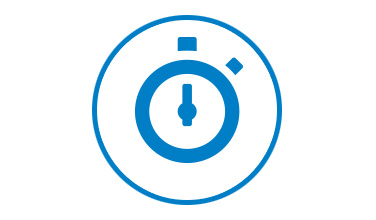
18 months
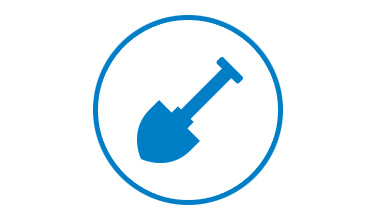
2,250 jobs

8 million-plus eggs
Hand in Hand co-founder to speak during World Economic Forum
Hand in Hand Co-founder Percy Barnevik is arriving in Davos, Switzerland next week to deliver an urgent message during the World Economic Forum Annual Meeting, a gathering of the world’s foremost political, business and other leaders.
Speaking at an event hosted by the Swiss Arab Network (SAN), a a non-profit association working to deepen economic and social ties between Switzerland and the Arab world, Barnevik will draw on decades of experience at the helm of Europe’s biggest companies, as well as his own philanthropic journey, to make an impassioned case for the role of grassroots entrepreneurship in eradicating global poverty. As the Swiss Arab Network’s charity partner, Hand in Hand will be raising funds for our programmes in Afghanistan on the night.
Omar Lahyani, the SAN president and co-founder, said: “We were absolutely amazed by the impact Hand in Hand has with its extremely efficient, cost-effective and sustainable model to fight poverty with jobs. It’s a great honour to welcome Percy Barnevik and learn, how he was able to build up his organisation to create over 1000 jobs per week. The Swiss Arab Nights will be an exclusive charity reception in our winterland oasis that is fully dedicated to Hand in Hand to create even more sustainable micro-enterprises and empower women to change the world.”
Held at the Rixos Flüela Hotel on Wednesday 23 January, the event will be attended by top CEOs, thought leaders, board members, public figures and members of the Swiss Arab Network, the Arab-Swiss Chamber of Commerce and Industry, the Swiss Business Council in Dubai, the Swiss-Asian Chamber of Commerce, and Switzerland Global Enterprise.
Hand in Hand named ACT Charity of the Year 2018
Hand in Hand International is proud to announce our selection as the Association of Corporate Treasurers (ACT) Charity of the Year for 2018/19.
The award, which culminates at the ACT Annual Dinner in November, follows a competitive bidding process to the ACT charity committee. Proceeds will fund an entire Kenyan village’s journey from subsistence to success, creating an estimated 275 new microbusinesses and 350 new jobs.
“From financial literacy training to the creation of sustainable microenterprises, so much of Hand in Hand’s work centres on sound financial management,” said Hand in Hand International CEO Dorothea Arndt. “That’s why it’s with particular pleasure that we accept this honour from Britain’s professional body specialising in corporate treasury.”
Although the designation lasts all year, fundraising peaks on 14 November with a charity auction at the ACT Annual Dinner at the Grosvenor House Hotel in London, hosted by Sandi Toksvig of Great British Bake Off and featuring John Kay, one of Britain’s leading economists, speaking on behalf of Hand in Hand.
We are looking for volunteers to help in those efforts, attending the dinner to speak with interested ACT members about our work. For more information about how you can help, please email Hand in Hand Head of Media Ann Dickinson.
To read the ACT’s Charity of the Year announcement, click here.
Hand in Hand Afghanistan: record expansion with UK aid from the British people
Hand in Hand Afghanistan is embarking on its biggest-ever expansion thanks to UK aid from the British people.
Funded by the UK government, the three-year, US $2.2 million grant aims to improve the livelihoods of 13,300 rural entrepreneurs in Sar-e Pol province. Some 9,500 microbusinesses and 13,300 jobs will be created.
“Now more than ever, government and civil society must work together for a safe, prosperous future in Afghanistan,” said Hand in Hand International CEO Josefine Lindänge. “This grant, our largest yet from a government partner, is a significant step in that direction.”
Hand in Hand is contributing an additional US $1 million to the project, bringing the overall budget to US $3.2 million. The funds come at a critical time. Last year, conflict killed 3,699 Afghan civilians and injured another 6,849 – a 22 percent jump from 2013, and the most since the UN began keeping records in 2009.
The causes of violence in Afghanistan are myriad and complex, but there is no doubt that poverty and joblessness play a crucial role. In a global survey conducted by the World Bank in 2011, 40 percent of insurgents interviewed said unemployment and idleness were their principle reasons for fighting. By providing business and skills training to thousands of Afghans, Hand in Hand and DFID are tackling poverty, and violence, at its roots.
For more information about the programme, please contact Programme Manager Agnes Svensson.
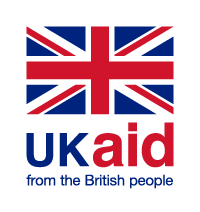
Worldwide media buzz for Hand in Hand member Frozan, 19
Late in March, Reuters profiled one of our members in Afghanistan: 19-year-old Frozan, who overturned convention and a lifetime of poverty to become the first young person in her village set up a beekeeping business.
Before long, Al Jazeera came knocking. Then the New York Post. Then BBC Persian, Russia’s Sputnik News and a whole host of others. When the dust settled a month later, Frozan had been featured by more than 100 media outlets worldwide, many in her native Afghanistan. It was, by some margin, our farthest-reaching media campaign yet.
The interest in her story, we believe, proves two things: one, our programmes are economically empowering young people in Afghanistan; two, the world is taking notice.
Thanks, Frozan, for sharing your success.
Read Frozan’s full story on the Reuters website
Dorothea Arndt appointed CEO of Hand in Hand International
Hand in Hand International wishes to announce the appointment of Dorothea Arndt as CEO. She replaces Josefine Lindänge Gutman, who is stepping down on 22 February after 10 years at Hand in Hand.
Dorothea joined Hand in Hand International in 2013 as Head of Communications. In 2015, her role expanded to include Corporate Partnerships, and for the past year she has acted as Co-CEO responsible for Hand in Hand International’s UK operations during Josefine Lindänge Gutman’s maternity leave. Before joining Hand in Hand International, she managed sales and communications teams at companies including Shell and PwC, and transitioned to not-for profit at the British Red Cross.
“What we’re doing to fight poverty is working, and today’s announcement reflects that,” said Dorothea. “It is a vote of confidence not just for me but for everyone who helps us to transform lives with entrepreneurship: our staff here in London, our colleagues in the field, and all of the donors and partners who make our work possible.”
Outgoing CEO Josefine Lindänge said:
“Helping to grow Hand in Hand International into the truly effective organisation it is today has been among the greatest honours of my life. I am certain Dorothea will take us to the next level.”
Hand in Hand International Chairman Bruce Grant said:
“Dorothea steps into the CEO role bringing intelligence, dedication and tenacity to the Hand in Hand cause. On behalf of the entire board of trustees, we look forward to working with her to raise the funds to transform a targeted 13.7 million lives by 2021.”
How efficient is Hand in Hand, really?
Founded by one of Europe’s best business minds, Hand in Hand has long put efficiency at the core of our work. But with a job creation model few others employ, benchmarking that efficiency has often been difficult.
Now, thanks to two new World Bank studies, that’s beginning to change. Published this year, both studies consider training programmes similar to ours – one in Kenya, the other in Togo – finding significant increases in profit in both cases.
Neither finds gains on par with Hand in Hand’s.
Study one, Kenya: Zero-sum gains?
Is one businesswoman’s gain another’s loss, or does a rising tide lift all boats? That, in effect, is what the World Bank set out to discover when it monitored an International Labour Organization (ILO) business training programme in Kenya broadly similar to Hand in Hand’s. With a sample size of 3,500 micro-enterprises, the randomised experiment measured the business incomes of ILO programme members versus their non-member neighbours, concluding that ”business training can help the overall market grow.” More importantly, for the purposes of this blog, it also discovered that monthly business incomes among programme members were 15 percent higher than among business owners that had not received the training.
Study two, Togo: The psychology of entrepreneurship
A second study, published in Science and featured in The Economist, considered another angle: psychology. Here, researchers from the World Bank, the National University of Singapore and Leuphana University in Germany partnered with the Government of Togo to follow three groups of small business owners who rarely kept books and almost never wrote business plans, earning an average of US $173 a month. The first group, a control group, received no training at all. The second group received training in conventional subjects such as accounting and financial management. The third group received training based on psychological research, designed to teach soft skills such as initiative and persistence.
Those skills, it turns out, are crucial: profits rose by an average of 30 percent among members of the third group. Perhaps more interesting, however, was another finding: the conventional training group saw no uplift at all.
Study three, Rwanda: Hand in Hand
So, how does Hand in Hand stack up?
In the ILO programme in Kenya, business profit was 15 percent higher for programme participants ($86) than non-participants ($75). In the World Bank’s partnership with the Government of Togo, monthly business profit was 30% higher for those that received the psychology base training ($224) compared to those that did not ($173).
And in Hand in Hand’s partnership with CARE in Rwanda, according to an independent study – the most recent, relevant research we have – monthly business incomes were 75 percent higher for those that received the enterprise training ($48) compared to those that did not ($29).
That’s more than double the World Bank’s programme in Togo, and five times the ILO programme in Kenya.
By the numbers
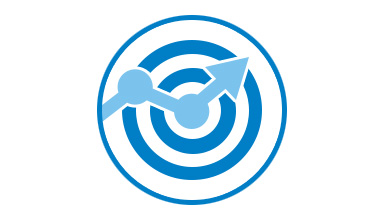 ILO, Kenya: 15% higher profit for enterprise trainees
ILO, Kenya: 15% higher profit for enterprise trainees
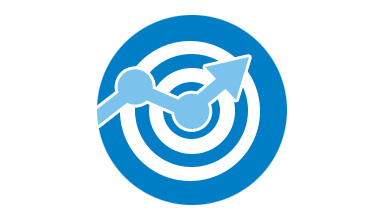 World Bank, Togo: 30% higher profit for psychology-based training
World Bank, Togo: 30% higher profit for psychology-based training
 Hand in Hand/CARE, Rwanda: 75% higher profit for enterprise trainees
Hand in Hand/CARE, Rwanda: 75% higher profit for enterprise trainees
Hand in Hand Country Manager Stephen Wambua was responsible for running our operation in Rwanda. He credits Hand in Hand’s dual-focus on hard and soft skills with the result.
“Yes, Hand in Hand teaches conventional business skills – our members would be lost without them,” says Stephen. “But our trainers’ capacity to inspire and motivate, along with mutual support among group members, is what makes our model work. It is, for lack of a better term, our ‘secret ingredient’.”
Hand in Hand will continue to seek out quality research to benchmark our programmes. And just as we always have, we’ll keep putting efficiency at the centre of our work.
